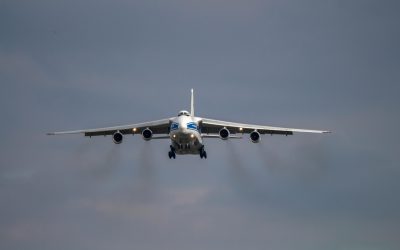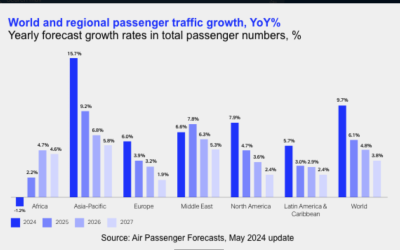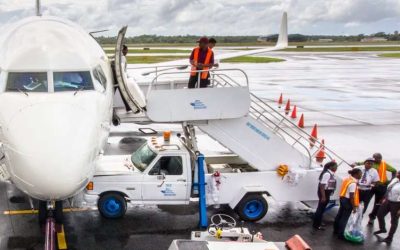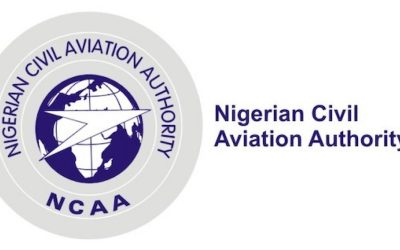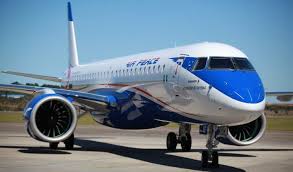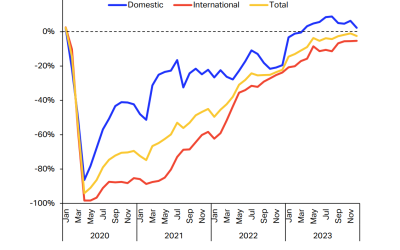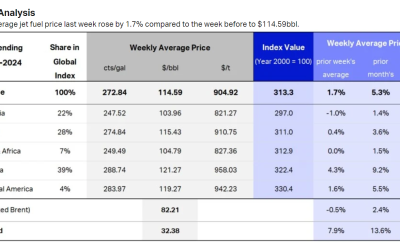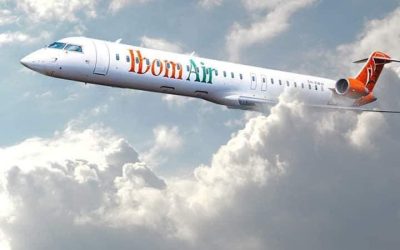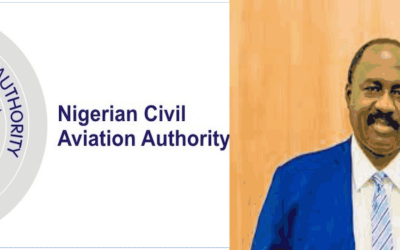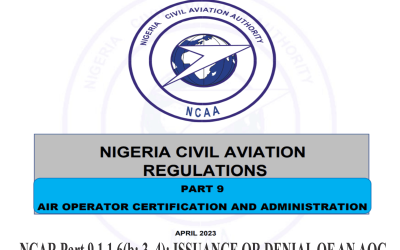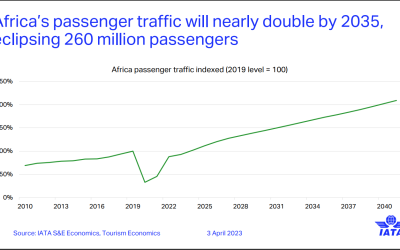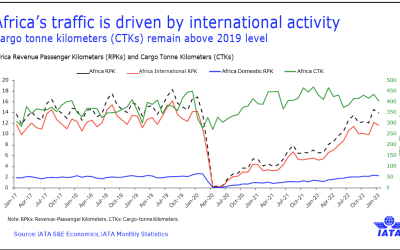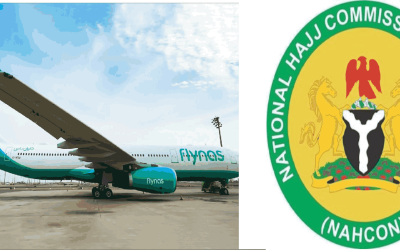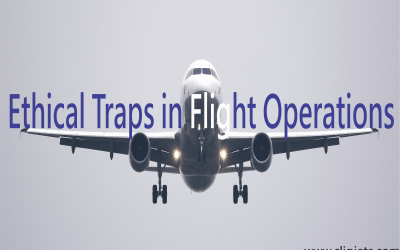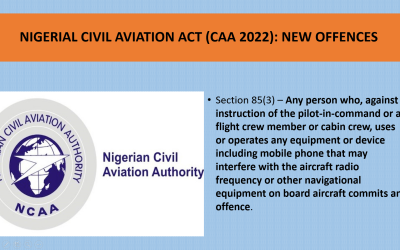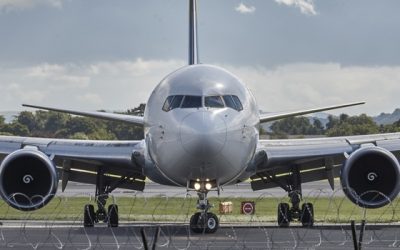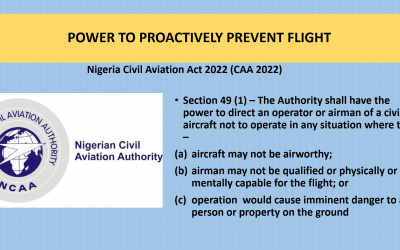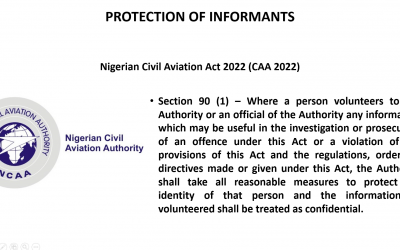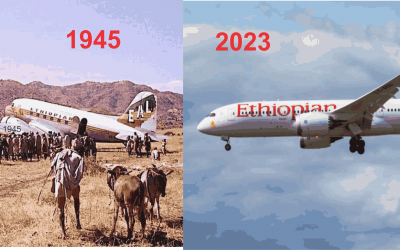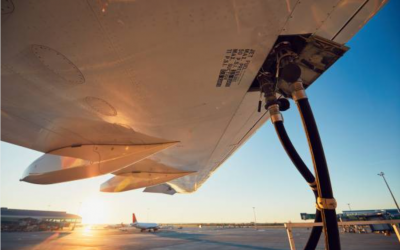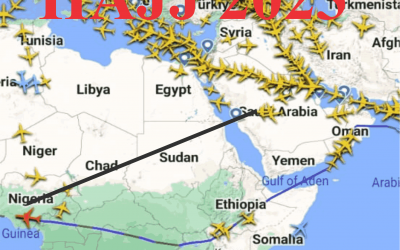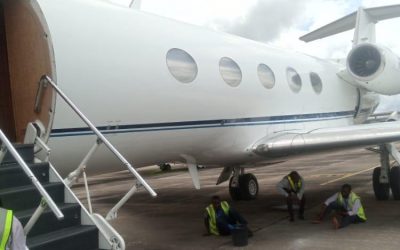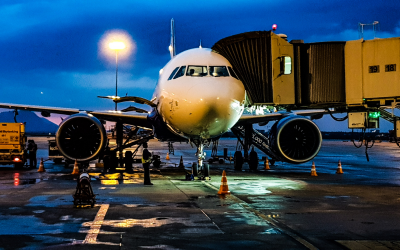Our Articles
Error Management Techniques in Flight Operations
Error Management Techniques (EMT) are not just operational tools—they are the backbone of aviation safety
Safety and Schedule Integrity in Airline Operations
Safety and schedule integrity in Airline operations refers to the proactive measures, systems, and protocols put in place to prevent accidents and mitigate risks, ensuring the well-being of passengers, crew, and assets.
Why You Must Come to Nigeria for Business and Tourism
Nigeria offers a unique blend of business opportunities and cultural experiences, making it a worthwhile destination for both professionals and tourists (Business and Tourism)
Managing Airline Passenger Expectations
Passenger expectations refer to the anticipations and assumptions travelers have about the quality, efficiency, and reliability of the services provided by airlines.
Career Politicians & Community Development: Curse or Blessing
The dominance of career politicians in Nigeria, particularly at the grassroots level, poses significant challenges to community development and youth empowerment
Nigeria’s 2025 International Airshow
Hosting an international airshow in 2025 is a golden opportunity for Nigeria to highlight its aviation potential, attract investment,
Emotional Intelligence in Flight Operations Management
While knowledge and experience in operational procedures are essential, emotional intelligence (EI) has emerged as a critical skill for managing the complex interpersonal dynamics, rapid decision-making,
Aircraft Leasing: Nigeria’s Strategic Move
Boeing’s invitation to Nigeria’s aviation stakeholders signals a recognition of Nigeria’s expanding role in the global aviation sector and Aircraft Leasing
The Crucial Role of ELTs in Aviation Safety
In the aviation industry, an Emergency Locator Transmitter (ELT) is one of the most vital safety devices onboard an aircraft (ELTs in Aviation Safety)
How Nigerian Banks Can Leverage IDERA to Revitalize the Airline Industry
Nigerian banks must invest in educating their teams on the implications of IDERA and aircraft leasing.
Aircraft Leasing and the Role of IDERA in Nigeria’s Airline Industry
Aircraft leasing is essential in the aviation industry, enabling airlines to operate modern fleets without the full financial burden of ownership. However, the Role of IDERA in Nigeria’s
Managing Stress and Fatigue: A Shared Responsibility
The risks associated with stress and fatigue are clear particularly in flight operations, where precision and attention to detail are paramount….
Aviation Industry: A Call for Integrity and Intentional Change
With all due respect to what the minister of aviation and his team are doing to redeem the image of the aviation industry,
Nigeria Lost the USA FAA Category One Rating: #Implications
While the minister and his team are making commendable efforts, if these initiatives cannot prevent significant setbacks like USA FAA Category one loss, there’s more cause for concern than celebration at this point.
Why Prioritizing Airline Employees’ Welfare is Critical
The welfare of airline employees’ should be prioritized by all stakeholders in the aviation sector. Their actions and inaction have a direct effect on the safety and efficiency
Aviation Challenges: Time to Move Beyond Investor Diplomacy
While investor diplomacy engagements with Boeing and Airbus are well-intentioned, they cannot substitute the fundamental reforms needed to attract meaningful investment.
Airlines and Ticket Demand Management
A well-structured demand management strategy ensures that airlines can anticipate and adapt to changing passenger needs, whether driven by seasonal peaks, sudden drops in demand.
Skybound Harmony: Transforming the Nigerian Aviation Experience
Skybound Harmony is a comprehensive guide that empowers passengers by clearly outlining their rights and privileges. In a market where passengers often feel disconnected and underserved, understanding what they can reasonably expect from airlines is crucial.
Strategies for African Airlines to Remain Profitable Amid Global Passenger Growth
The projected growth in global passenger numbers presents both opportunities and challenges for African airlines. But with proactive and innovative approaches, hey will thrive .
Synchro-Operationality in Airline Operations: Secret to Efficiency and Profitability
Synchro-operationality represents a paradigm shift in airline operations, offering a comprehensive solution to the challenges of efficiency and profitability.
Difference Between Ground Handling and Flight Dispatch in Airline Operations
Understanding the distinct roles of ground handling and flight dispatch helps to appreciate the complexities involved in airline operations
Incentives for Desired Behavior a Reward for Airlines
Creating incentives for desired behavior in airlines can be highly rewarding as it leads to improved efficiency, cost savings, and customer satisfaction
Accountable Managers and Airlines in Nigeria
An accountable managers in the airline business holds a pivotal role, primarily focusing on ensuring that the organization complies with regulatory requirements
Gen-Z Flight Dispatchers and Use of Technology in Airline Operations
When Gen-Z Flight dispatchers become overly reliant on their phones and computers, they risk losing touch
Advanced Passenger Information (API) Rule in Nigerian Aviation
The Nigerian aviation industry is poised for a significant transition with the upcoming implementation of the Advanced Passenger Information (API) rule
Nigerian Pilgrims Amidst TUC and NLC Indefinite Strike
The looming indefinite strike action has put Nigerian pilgrims in a precarious position
Safeguarding Integrity in Airline Operations
Ethical-TrapsDownload
Why Restricting Flight Dispatch Training Enrollments in Nigeria is Imperative
The oversupply of poorly trained flight dispatch personnel relative to job opportunities exacerbates unemployment and underemployment in the industry
Ensuring Airlines’ Passenger Rights
The aviation industry’s approach to passenger rights embodies a balance of accountability and pragmatism.
Financial Constraints: Why Airlines Safety is at Risk
If an airline liabilities exceed assets and shareholder equity turns negative, the entire operation is at risk due severe financial constraints which must be addressed .
Mental Health Discussions and Airline Employees
Acknowledging mental health struggles is not a sign of weakness or incompetence; rather, it is an act of courage and self-awareness
Diversifying Careers for African Pilots in Aviation
African Pilots beyond piloting lies a vast horizon of possibilities waiting to be explored
Beyond the Cockpit: The Evolution of Pilots in the Aviation Industry
There exists a notable dichotomy between the nominal pilot and the aviator who transcends the confines of the cockpit to forge a multifaceted career path
Rebuilding Trust After an Aircraft Accident
While aircraft accident can deal a blow to an airline’s reputation, they also present an opportunity for growth and improvement.
Nigerian Aviation Minister Directive
While the Aviation Minister directive may have been well-intentioned, its implementation is fraught with challenges that cannot be overlooked
Nigeria’s Aviation Sector and a Call for Urgent Compliance
The minister of aviation call for compliance with aviation sector regulations is not merely a matter of legal obligation but a critical imperative for safeguarding the integrity and safety of Nigeria’s airspace.
Air Peace Airlines: Confronting Fierce Competition on the Lagos to London Route
Recent successes on the Lagos to London route by Air Peace don’t guarantee long-term success
Brand Identity, and Airline’s Passenger Experience Disconnect
The misalignment of brand identity and organizational culture, exacerbated by ineffective recruitment practices
Intersection of Branding and Culture: Airline Business
Branding and culture are integral facets of the airline industry, wielding immense influence over passenger perception and loyalty
Benefits of Strategic Planning in Airline Operations
Strategic planning is not merely a theoretical exercise but a pragmatic imperative for success in airline operations
Transform Your HND into a Bachelor’s Degree with Nexford University
This program “HND BBA Top up program (Nigeria)” is designed by Nexford University for HND holders in Nigeria
The Impact of SMART Leadership on Airline Operations
SMART leadership is indispensable in the complex and high-stakes world of airline operations. By adhering to the principles of Specific, Measurable, Attainable, Relevant, and Time-Bound goal-setting, leaders at all levels
Increased Inflation in Nigeria and Airline Profits
Inflation isn’t just a number on a chart; it’s a formidable force that chips away at airline profits, eroding margins and threatening sustainability.
Airlines Operations and the Impact of Cabotage on Glocalization
To navigate the complexities of cabotage on glocalization opportunities profitably, airlines most seek strategic alliances, advocate for regulatory reforms, and diversify revenue streams.
Festus Keyamo: The Perils of Aircraft Leasing in Nigeria Despite Government Assurances
Despite the commendable efforts of the Nigerian government to enhance aircraft leasing, a comprehensive gap analysis conducted by our team of researchers at Cliqjets Consulting indicates that significant challenges lie ahead
Flight Dispatchers: Handling Uncertainty in Turbulent Times
While uncertainty may be an inherent aspect of airline operations, flight dispatchers can take proactive steps to navigate through challenging circumstances.
Balancing Personal Life and Career: Tips for Cabin Crew
As a cabin crew member, balancing your personal life with the demands of your career can be challenging.
Gatwick Airport Gateway to London: Air Peace’s Strategic Move to Benefit Nigerian Passengers
Gatwick International Airport serves as a gateway to a vibrant array of cities, cultural events, and business opportunities that are poised to favor Air Peace’s travelers from Nigeria
10 Strategies for African Airlines to Expand Globally
Before embarking on any expansion initiative, African airlines must conduct thorough due diligence to assess market opportunities, regulatory requirements, competition, and potential risks.
Balancing Patience and Urgency: The Art of Flight Dispatching
Successfully navigating the intricate dance between patience, urgency, and adherence to SOPs requires finesse and skill
Assessing Air Peace’s Entry into the London Market: Concerns and Recommendations
Entering the fiercely competitive London market demands more than just ambition; it requires a strategic approach backed by operational excellence.
Operational Strategies for African Airlines to Thrive
As the air passenger market continues to evolve, African airlines must adapt and innovate to remain competitive and sustainable.
Nigerian Airlines: Affordability of Air Travel and Aviation Fuel Prices Conundrum
Fuel prices constitute a significant portion of operating expenses for airlines, directly impacting profitability and operational efficiency.
Heat Stress: Tips for Staying Hydrated and Safe for Airline Ground Operation Officers
As temperatures soar across Nigeria, reaching a scorching 41°C in the North and 39°C in the South, the implications for individuals working outdoors, particularly airline ground operation officers, cannot be overstated
The Importance of Flight Mode: Ensuring Smooth Flight for Airline Passengers
In today’s digital age, staying connected is a necessity. However, when it comes to air travel, there’s one simple action that passengers often overlook but can significantly impact the safety and efficiency of their flight
Ibom Air: The Perilous Equation of Wet-Leasing Aircraft in Nigeria Amidst Forex Scarcity
In an environment of forex scarcity, Nigerian airlines face heightened financial risk when entering into wet leasing arrangements.
Airline Employee Unions: Adopting the Southwest Airlines Model for Nigerian Operators
In the ever-evolving realm of aviation, fostering strong relationships between management and employees is pivotal for operational excellence and a thriving organizational culture. Yet, in Nigeria, there’s a prevalent discomfort among airline owners regarding employee union formations, fueled by apprehensions of potential conflicts and managerial challenges.
Forex Scarcity: The Impact of Naira Devaluation on Airline Operations in Nigeria
The sustained devaluation of the Naira poses significant challenges to the financial viability of airlines operating in Nigeria.
Embracing Innovation and Strategic Partnerships to Propel African Airlines Forward: The Ibom Air-Zenith Bank-Airbus Partnership
The partnership between Ibom Air, Zenith Bank, and Airbus represents a paradigm shift in the African aviation landscape. By pooling their resources and expertise, the three entities have created a synergistic alliance that benefits all parties involved.
NCAA Project 2024: Navigating Success for Nigerian Airlines
The Nigerian Civil Aviation Authority (NCAA) is set to undergo a significant transformation with the unveiling of “NCAA Project 2024” under the leadership of the acting Director General, Captain Chris Najomo.
NCAA Set to Deny AOC to Persons Who Played a Role in Circumstances Leading to the Revocation of a Previous AOC
The implementation of the new CARs standards in May 2023 underscores the critical need for heightened professionalism within the Nigerian aviation industry. Airline professionals must recognize the gravity of their responsibilities and work collaboratively to maintain the highest standards of safety, compliance, and operational excellence.
Navigating Ethical Traps: The Impact on Revenue Generation and Profitability in African Airline Operations
As African airlines strive for profitability and sustainable growth, they must navigate the intricate web of ethical challenges unique to the region. Addressing these challenges head-on, adopting transparent practices, and embracing socially responsible initiatives are not just ethical imperatives but also strategic moves to safeguard revenue streams and enhance long-term profitability.
Leadership Void: A Call for Transformational Leaders in Africa’s Airline Industry
The dearth of true leadership in the African airline industry is hindering its potential for growth and development. To overcome the challenges, there is a crucial need for transformative leaders who can inspire and empower both airlines and their employees
Is Africa’s Aviation Industry Prepared for a Groundbreaking Expansion by 2035?
The projected growth in Africa’s Aviation passenger traffic by 2035 offers a beacon of hope and opportunity for the continent’s airlines. I believe by embracing innovation, focusing on excellence, fostering collaboration, and championing sustainability.
Africa’s Air Travel Landscape: A Glimpse into International Dominance and Domestic Opportunities
While international passenger traffic continues to dominate Africa’s air travel landscape, the potential for growth in domestic traffic remains untapped. By addressing infrastructure challenges, promoting regional tourism, and implementing supportive policies, African countries can unlock opportunities for domestic air travel development
Striking the Right Balance: Micromanagement vs. Macromanagement in Flight Operations
In the dynamic and challenging world of flight operations, one of the keys to success lies in navigating the delicate balance between micromanagement and macro-management. By understanding the merits and demerits of each approach and applying them judiciously, airlines can create an environment that prioritizes both precision and innovation, ultimately ensuring safe, efficient, and successful operations.
Hajj2024: FG of Nigeria Approved Three Airlines to Airlift Pilgrims…….
Federal Government of Nigeria has given its official nod to three notable airlines for the 2024 Hajj pilgrimage: Air Peace Ltd., FlyNas, and Max Air. Additionally, three air cargo firms, namely Cargo Zeal Technologies Ltd, Nahco Aviance, and Qualla Investment Limited, have received approval to handle the excess luggage of pilgrims.
Navigating Change: A Guide for Airlines and Businesses in Nigeria’s Evolving Aviation Landscape
The winds of change are reshaping Nigeria’s aviation landscape with recent leadership shifts across its agencies and units. While change can introduce uncertainties, it also unfurls avenues for growth, collaboration, and sharper industry focus. For Nigeria’s airlines and businesses tethered to the aviation realm, agility and adaptability are paramount. Dive into this guide as we chart a course through this transformative phase, ensuring resilience and growth in our skies.
🎄 Merry Christmas from Cliqjets Consulting! 🎄
We wish you a holiday season filled with joy, laughter, and prosperity. May the spirit of Christmas bring warmth to your heart and success in your endeavors. Thank you for your continued trust and partnership. Here’s to a prosperous New Year ahead!
Understanding Ethical Traps in Flight Operations
Ethics in flight operations is not merely a theoretical concept but a practical necessity. By understanding the importance of ethics, recognizing potential traps, and implementing measures to navigate them, the aviation industry can uphold its commitment to safety, trust, and integrity. I
Capacity Planning for Airline Operations in Nigeria: A Strategic Imperative
Capacity planning is not just a necessity; it is a strategic imperative for the success and sustainability of airline operations in Nigeria. By proactively addressing the unique challenges and opportunities in the region, Nigerian airlines can position themselves as key players in the global aviation landscape.
Transformative Leadership Unleashed: President Tinubu Overhauls Aviation and Aerospace Development Sector
In a bold move aimed at elevating the standards of Nigerian Civil Aviation, safeguarding consumer protection, and enhancing the well-being of passengers and industry stakeholders, President Bola Tinubu has given his stamp of approval to a series of leadership changes within the Federal Ministry of Aviation and Aerospace Development.
Optimism Bias in Flight Operations Management
Optimism bias is a double-edged sword in flight operations management. While it can drive motivation and innovation, its potential to compromise safety and decision-making necessitates proactive measures. By raising awareness, encouraging critical thinking, and implementing robust risk management strategies, the aviation industry can navigate the skies with a balanced and realistic approach, ensuring both safety and progress in flight operations.
Nigerian Civil Aviation Act 2022: Handling Unruly Passengers While Upholding Safety and Responsibility in Air Travel
The inclusion of Section 85(4) in the Nigerian Civil Aviation Act 2022 is a commendable step toward creating a safer and more regulated aviation environment. By making unruly behavior on flights a punishable offense, the legislation not only protects airlines but also encourages responsible conduct among passengers.
A Decade of Domestic Airlines Passenger Traffic in Nigeria: 2024 Outlook, Patterns and Projections
The past decade has been a rollercoaster for Nigeria’s domestic airline industry, with ups and downs influenced by various economic and global factors. As we move into 2024, careful consideration of economic indicators, government policies, insecurity, and global events will be essential for stakeholders in the aviation sector.
NIGERIAN CIVIL AVIATION ACT 2022: A Clear Stance on In-Flight Device Use
In a significant move to enhance aviation safety and address potential risks associated with in-flight electronic device usage, the Nigerian Civil Aviation Act of 2022 introduces a new offense in Section 85(3).
The Minister of Aviation’s Order and the Complex Realities of Wet Leasing in Nigeria
While the Minister of Aviation’s order reflects a commitment to bolstering local participation and safety, the complexities surrounding wet leasing, scarcity of local pilots, and potential legal entanglements necessitate a careful and phased approach.
Nigerian Domestic Airlines Facing Demand Dilemma: How Ticket Price Increases Could Lead to a Notable Drop in Demand for Airline Flight Tickets
The anticipated increase in demand for domestic airline tickets during the December and Christmas holiday seasons in Nigeria faces unprecedented challenges. The inelastic nature of airline ticket demand is being tested by the emergence of credible alternatives and economic realities. As Nigerian domestic airlines grapple with this shifting paradigm, understanding the delicate balance between ticket prices and consumer behavior becomes essential.
Success Demands Perseverance and Giving Up is Never an Option!
In the pursuit of success, giving up is a luxury that true achievers cannot afford. The journey towards greatness is paved with challenges, and success is the reward for those who navigate the path with resilience, perseverance, and an unwavering commitment to their goals. Every setback is an opportunity to learn, grow, and ultimately triumph. So, the next time life throws challenges your way, remember: giving up is never an option for those destined for success.
The Significance and Implementation of Section 80 in New Nigeria’s Civil Aviation Act 2022
Within the intricate web of regulations governing aviation safety and compliance, Section 80 of Nigeria’s Aviation Act stands as a pillar of legal enforcement. This section explicitly addresses the consequences and legal ramifications for knowingly and willfully engaging in acts of forgery, counterfeiting, alteration, or falsification of any document authorized by the Act or required to be produced under its provisions.
Empowering Nigerian Aviation Safety: Understanding the Significance of Section 31(7)
Despite public sentiment and accusations of airlines being targeted by regulatory bodies, the Nigerian constitution has vested the aviation authority with the mandate to declare emergencies in situations that endanger safety and property in the industry. While this grants the regulators authority, it also signifies a call for accountability as they bear responsibility for appropriately managing any emergencies that arise.
Ensuring Air Safety: A Vital Provisions of Nigeria’s Civil Aviation Authority CAA 2022
Misconceptions among aviation professionals often paint CAA authorities as overly zealous in carrying out their lawful responsibilities. Some individuals, fueled by ignorance, take this personally. However, the law is crystal clear, empowering them to execute their duties unhindered.
CAA ACT: Safeguarding Informants in Aviation for Collective Safety
Protecting these whistleblowers is paramount for several reasons. particularly because their disclosures often lead to the identification and rectification of safety hazards, ultimately preventing accidents and ensuring the well-being of everyone involved in aviation. By safeguarding these individuals, we not only uphold their rights but also encourage a culture of accountability and responsibility within the industry.
Developing a Cybersecurity Ethical Leadership Culture in the Airline Industry
Cybersecurity and ethical leadership are paramount in the airline industry to safeguard passenger data, ensure operational safety, and maintain public trust. Ethical leadership sets the tone for responsible data handling, while cybersecurity protects against potential threats, preventing potential disruptions and ensuring the industry’s credibility and passenger safety.
Trust: The Indispensable Prerequisite for Success in Corporate Organizations
Irrespective of the industry, market valuation, projected return on investment, and the prevailing business landscape, the absence of trust holds an intrinsic power to erode all apparent achievements. Take, for example, the aviation sector, where I accumulated over a decade of professional experience. The dearth of trust has proven fatal for numerous promising airlines, particularly in the African context.
Unique Quotes for Emerging Businesses
Turning Loss and Failure into Success
True strength is not about avoiding defeat but embracing it and transforming it into a stepping stone towards a brighter future. It’s the ability to see setbacks as opportunities in disguise, and it’s the unwavering belief that failure is not the end but a necessary part of the path to success.
The Power of Visionary Leadership in Business
Good business leaders create a vision that serves as the North Star for their company. This vision is not just a lofty idea; it’s a concrete and inspiring picture of what the future could be. Articulating this vision is the next critical step. Effective leaders are excellent communicators who can translate their vision into a message that resonates with their team and stakeholders.
Updated: Enhancing Operational Efficiency in Airline Operations with John Kotter’s 8-Step Change Model
https://cliqjets.com/2024/03/12/festus-keyamo-the-perils-of-aircraft-leasing-in-nigeria-despite-government-assurances/John Kotter’s 8-Step Change Model offers a structured path for African airlines to enhance their operational efficiency.
The Power of Strategic Thinking: A Key to Successful Strategies in the Aviation Industry
Thinking is the secret sauce behind successful strategies in the aviation industry. Leaders must embrace the power of thinking to navigate complexity, prioritize safety, adapt to change, optimize resources, and enhance the customer experience. In a field where every decision carries weight, thinking is not just an option; it’s a necessity for achieving excellence and ensuring the continued success of aviation companies worldwide.
Uncovering the Sources and Strategies to Mitigate Revenue Leakages in the Airline Business
In the soaring skies of aviation, our unity and vigilance must be unwavering. Together, as airline owners and dedicated employees, we hold the power to seal the gaps that bleed revenue from our industry. Let us be relentless in our pursuit to plug every leak, for in these efforts lies the lifeline of our business.
Upholding Ethical Behavior for Airline Personnel in Nigeria: Ensuring Safety, Efficiency, and Profitability
Ethical behavior among airline personnel in Nigeria is not an abstract ideal; it is a concrete necessity. It is a linchpin for safety, efficiency, and profitability in the aviation sector. The tragic history of plane crashes in Nigeria reminds us of the dire consequences that can result from unethical decisions. As the nation’s aviation industry continues to grow, a commitment to ethical behavior is not just a moral choice but also an economic imperative for a safer, more efficient, and profitable future in Nigerian aviation. The airline industry is pivotal in Nigeria’s economic development and connectivity.
The Crucial Role of Trust in a Thriving Airline Business
Travelers are more likely to choose an airline they trust, as it represents a reliable and consistent experience. Whether it’s an on-time departure, courteous staff, or efficient baggage handling, trust in an airline’s ability to deliver a positive travel experience fosters customer loyalty. Satisfied customers are not only more likely to become repeat flyers but also serve as brand advocates, spreading positive word-of-mouth and attracting new passengers.
Creating Value in the Airline Business: Innovation and Customer-Centricity
Creating value in the airline business necessitates a multifaceted approach that combines innovation, customer-centricity, and strategic collaborations. By continuously seeking ways to improve operations, offering personalized experiences, and broadening their service portfolio, airlines can create lasting value, cultivate customer loyalty, and thrive in an increasingly competitive industry. Embracing a forward-thinking mindset and putting the passenger at the heart of their operations will undoubtedly set successful airlines apart from the rest.
Motivation: Do not Despise the days of small beginings
Circumstances do not define a person’s potential. Each one of us carries the spark of greatness within, waiting to be ignited by the choices we make and the effort we put forth. No matter where you start, never let go of your dreams, for they are the stepping stones that lead to greatness, regardless of the prevailing circumstances surrounding you.
The Critical Importance of Emergency Exits in Commercial Airplanes: A Priority for Airline Operators
airline operators must take emergency exits seriously for the safety and well-being of their passengers. Proper maintenance, regular checks, adequate training, and adherence to regulatory guidelines are essential to ensure that these exits are fully functional and accessible when needed most. By prioritizing the significance of emergency exits, airline operators can significantly improve the chances of a successful evacuation and minimize the potential loss of life in emergencies. Safety should never be compromised, and emergency exits are a critical aspect of ensuring a secure and reliable air travel experience.
Data-Driven Decision Making: A Tool for Handling Inefficiencies in Flight Operations Particularly in Developing Countries Like Nigeria
Data-Driven Decision Making is a powerful strategy for handling inefficiencies in flight operations. By leveraging data analytics, real-time monitoring, and predictive maintenance, flight operators can optimize flight paths, reduce fuel consumption, improve crew scheduling, and enhance overall operational efficiency. Embracing DDDM not only leads to cost savings but also helps ensure safer and more reliable flight operations, ultimately benefiting both airlines and passengers alike in the aviation industry
CLIQJETS CONSULTING: PAVING THE WAY FOR AVIATION EXCELLENCE THROUGH SAFETY, EFFICIENCY, PROFITABILITY, AND OPERATIONAL SUSTAINABILITY
CliqJets Consulting, a reliable aviation consultancy, is thrilled to reiterate its unwavering commitment to transforming the aviation industry in Nigeria through an innovative approach to safety, efficiency, profitability, and operational sustainability and...
The Critical Importance of Aircraft Fueling Procedure and Fuel Integrity in the Aviation Industry.
The fueling procedure and fuel integrity in the aviation industry are of utmost importance due to their direct impact on safety. Proper fueling procedures ensure that the correct amount of fuel is loaded, preventing emergencies caused by fuel shortages during flights. Moreover, fuel integrity plays a crucial role in maintaining optimal engine performance. Contaminated or substandard fuel can lead to engine malfunctions and failures, posing serious risks to the lives of passengers and crew. Adhering to strict fueling protocols and ensuring fuel integrity is a vital safety concern that must be prioritized by all stakeholders in the aviation industry to mitigate potential hazards and ensure safe operations.
The Invaluable People Management Skills and Personal Hygiene practices of a Flight Dispatcher while at Work
While technical knowledge is essential, invaluable people management skills, prioritizing cleanliness, proper grooming, and overall well-being of flight dispatchers make them indispensable in the aviation industry. Their ability to communicate effectively, multitask efficiently, adapt to changing circumstances, and collaborate with diverse teams ensures the safe and efficient operation of flights, making them unsung heroes in the skies.
Navigating Success: Why Nigerian Airlines Should Embrace Flight Dispatchers Seeking’ On-the-Job Training Opportunities”
Nigerian airlines stand to gain immense benefits by embracing flight dispatchers seeking on-the-job training. By unlocking untapped potential, facilitating knowledge transfer, adapting to technological advancements, and enhancing safety and efficiency, the industry can soar to new heights. Embracing these aspiring professionals will not only enrich the airlines but also contribute to the overall growth and development of the Nigerian aviation industry. It is time to recognize the invaluable role of flight dispatchers and provide them with the opportunities they need to flourish and shape the future of air travel in Nigeria.
Flight Dispatchers Enjoying Real-Time Practical Experience in International Flight Operations Organized by Cliqjets Consulting
Cliqjets Consulting, a reliable aviation consultancy firm, has recently commenced its highly anticipated free On-the-Job Training (OJT) program. The program aims to provide aspiring aviation professionals with valuable real-time practical experience in flight dispatch operations. After an extensive selection process, Cliqjets Consulting has chosen four talented students to participate in this unique opportunity.
The Underutilization of Academic Qualifications by Southern Kaduna People in Kaduna State, Nigeria
Southern Kaduna boasts a significant number of educated elites who have acquired advanced degrees from renowned institutions. However, due to limited employment opportunities, their qualifications often go unnoticed or underutilized. This underutilization not only stifles individual growth but also hampers societal progress, as valuable knowledge and expertise remain untapped.
The Unyielding Validity of Dreams: Rising Above Nigeria’s Economic Realities
It is essential to believe in the validity of dreams and encourage others to do the same. Despite the challenging economic reality, Nigeria needs dreamers who can envision a brighter future and work tirelessly to turn those dreams into reality. The validity of one’s dreams is not contingent on economic circumstances. Instead, dreams remain an integral part of the human spirit, pushing us to evolve and create a brighter future. Embracing our dreams and nurturing them despite the challenging economic climate can lead us to new possibilities and inspire a generation to overcome barriers and achieve greatness Let us continue to inspire and support one another, for it is through our collective dreams that we can forge a prosperous and resilient nation.
Meeting Passengers’ Expectations: What Airline Passengers Really Want
In an increasingly competitive airline industry, understanding passenger expectations is crucial for airlines to stay ahead. To meet the ever-evolving demands of travelers, airlines must go beyond simply transporting passengers from one destination to another. This article explores what passengers truly want from an airline and highlights key areas where airlines can strive to excel.
The Reign of Passengers: Why They Are the Kings of the Airline Business
In the contemporary airline business, passengers reign supreme. Their choices, demands, and preferences are driving the industry’s evolution. Airlines that embrace a customer-centric mindset, adapt to changing trends, and consistently provide exceptional experiences will thrive. By recognizing the passenger as the king of the airline business, carriers can build a loyal customer base, achieve sustainable growth, and soar to new heights in an ever-competitive market.
5 Reasons Why Nigerian Airlines Should Concentrate on Personalized Customer Care Communication Management
Personalized customer care communication management service offers numerous advantages to Nigerian airlines. By focusing on customer satisfaction, creating memorable experiences, differentiating from competitors, building long-term relationships, and improving brand reputation, airlines can unlock growth and profitability. Embracing personalized customer care communication management service positions Nigerian airlines at the forefront of customer-centric excellence, ensuring a thriving future in the competitive aviation industry.
Unlocking Growth and Profitability for Airlines in Nigeria through Strategic and Effective Customer Care Management
Strategic and effective customer care management plays a pivotal role in unlocking growth and profitability for airlines in Nigeria. By focusing on enhancing the customer experience, building a strong brand reputation, and leveraging data-driven insights, airlines can differentiate themselves from competitors, attract more passengers, and achieve sustainable growth and profitability in a challenging industry landscape.
Strategic Planning for Commercial Airlines in Nigeria: Navigating the Skies to Success
Strategic planning is crucial for commercial airlines in Nigeria to navigate the dynamic aviation industry. It helps in setting clear objectives, identifying competitive advantages, optimizing resource allocation, and mitigating risks. Effective strategic planning enables airlines to adapt to market trends, enhance operational efficiency, and ensure long-term sustainability in a highly competitive and volatile sector.
Profitability is Possible in the Airline Industry Regardless of Business Environment
Profitability is crucial for airline sustainability as it ensures financial stability and long-term viability. Profits enable airlines to invest in modernizing their fleets, improving safety measures, and expanding routes. They also provide a buffer against economic downturns and unforeseen events, allowing airlines to weather crises and continue providing essential air travel services. However, the airline industry is often regarded as one of the most challenging and volatile sectors to operate in. It is susceptible to various factors, including fuel prices, economic downturns, regulatory changes, and fierce competition. However, despite these obstacles, profitability is possible in the airline industry regardless of the business environment.
Hajj Operations: Cultural Variation and Contract Agreements with Foreign Airlines
Cultural variation should be at the forefront of contract agreements with foreign airlines during Hajj operations in Nigeria. Embracing these variations fosters mutual respect, effective communication, and cultural sensitivity. By considering cultural differences, Nigeria can create an environment that is conducive to a successful and harmonious pilgrimage experience for its citizens.
Detrimental Impact of Corruption on Nigeria’s Airline Business and Strategies for Prevention
linkedin.com/in/shadrachswantekambai Female official refuses to take a bribe, anti-corruption laws are in action, close up Corruption practices in Nigeria have had a profound and detrimental effect on the airline industry. The prevalence of bribery, embezzlement, and...
Employing Experienced Professionals: An Opportunity, Not a Threat, for Airlines in Nigeria
Employing experienced professionals in the Nigerian airline industry brings numerous advantages. Their expertise, mentorship, and leadership abilities contribute to improved operations, customer experiences, safety standards, and crisis management. Embracing the opportunities presented by experienced employees can propel airlines towards success and growth in the dynamic Nigerian aviation sector.
The Power of Resilience: Pushing Forward in Life’s Challenges When it Pushes you Back
Life is an unpredictable journey, often testing our strength and resilience. Just when we think we have it all figured out, obstacles arise, setbacks occur, and we find ourselves pushed back. However, it is precisely in these moments of adversity that we need to summon our inner strength and push forward, for it is through resilience that we can soar to new heights.
Hajj2023: Cabin Crews’ Preferred Conduct Toward Pilgrims During Hajj Operations
The best attitude of cabin crew members towards pilgrims during Hajj operations is one of respect, sensitivity, effective communication, attentiveness, and a spirit of service. By embodying these qualities, cabin crew members can contribute to a positive and fulfilling pilgrimage experience for the pilgrims, making their journey to Mecca not only safe and comfortable but also spiritually uplifting. The cabin crew’s commitment to providing exceptional service helps ensure that the sacred journey of Hajj is one that pilgrims will cherish and remember for a lifetime
Hajj2023: The Importance of Proactive, Creative, and Collaborative Ground Staff during Hajj Operations
The role of ground staff during Hajj operations is crucial, and being proactive, creative, and collaborative is essential to successfully manage the complexities of this event. These qualities enable ground staff to optimize operations, solve problems effectively, and coordinate seamlessly with various stakeholders. By embodying these traits, ground staff can contribute to a smoother and more enriching Hajj experience for pilgrims, ensuring that their journey is as spiritually fulfilling as possible.
Legal Obligations and Compliance in the Airline Business
Comprehending legal obligations and diligently complying with them is paramount for airlines in the ever-evolving aviation industry. By prioritizing safety, security, consumer protection, labor laws, and environmental regulations, airlines can establish a strong compliance culture and build a reputable brand while ensuring a smooth and lawful operation.
Flynas Airline Set to Transport Over 9000 pilgrims for Hajj from Murtala Mohamed International Airport Lagos Nigeria.
flynas is all set to commence its operations from Lagos International Airport, Nigeria, on the 29th of May 2023, for the annual Hajj pilgrimage. This year, flynas will be responsible for lifting approximately 9,000 pilgrims from Lagos, Ogun, and Osun states to Saudi Arabia. To accommodate this significant undertaking, the airline will utilize three state-of-the-art Airbus A330-800S aircraft, ensuring a comfortable and safe journey for all passengers.
Sudan Conflict: Hajj flights from West Africa to Incur Extra 2HRS Flight Time to Saudi Arabia
particularly the flight duration, which would rise by 2 hours if effective efforts to end the conflict are not done before that time. Prior to the conflict, flying across Sudan was the quickest route for West Africa and South America to Saudi Arabia. However, due to the recent closing of Sudan’s airspace, all planes must adjust their route through to Saudi Arabia. This has substantial economic consequences as well. For example, in southwest Nigeria, the average flight duration is 05:30 hours, but owing to the detour, it would now take around 07:30 hours. This means that the cost of flying will rise by $600 from the set $1650 to $1850 and this cost will be borne by either the pilgrims or the airlines.
Airlines Leadership Dilemma: Nigerian Aviation industry in Perspective
The age of one airline having a monopoly on the business due to technological and operational capability, government ties, and aircraft type has ended. These indicate that exciting times are ahead, and if this momentum continues, what happened in the banking sector years ago is likely to happen in the aviation industry as well. These developments will likely prompt airlines to seek strategic alliances, globalization and regionalization, partnerships, interlining, and mergers in the near future. However, these developments create a new leadership dilemma, necessitating the emergence of new leaders with new leadership strategies to meet the growing business environment.
Planning Fallacy in Flight Operations
Planning fallacy can have a significant impact on flight operations, as pilots and other aviation professionals may be prone to underestimating the time, resources, and effort required to complete tasks and projects related to flying. This can lead to delays, cost overruns, and other problems that can compromise safety and efficiency.
Six Ways Airline Passengers can protect their Personal Data from Cyber Criminals
The digital transformation of the airline sector has had a favorable influence on flight operations, but it has also exposed the airline system to cyber threats. Smart airports and an ever-expanding array of technical gadgets are just two of the numerous things that airlines must traverse in order to service their consumers. Therefore, airlines with multiple destinations must have robust cybersecurity programs in place to address the risks associated with cyber and physical security threats that have become inherent in the systems Bose (2019). Safeguarding passenger personal data is the joint duty of all stakeholders in the industry, not just the airline
Four Ways Airlines Can Detect and Prevent Hacking of Their Ticketing System
One of the most crucial departments in airline operations is ticketing. This is because it serves as the access point for all revenue entering the company. There, airlines must pay close attention to it’s network security due to the crucial role it plays in securing airline income, passengers’ passenger personal data, and its online vulnerability to hackers.
Opinion: How Citizens’ Patriotism Would Affect Nigeria Air Performance in Nigeria.
Patriotism has the potential to have a huge impact on the airline industry. Nigeria Air has the potential to play a critical role in linking people from all over the world, thereby encouraging economic growth and cultural interaction. Patriotism can develop a sense of allegiance to the country in this circumstance, encouraging individuals to support the national airline regardless of the options available. But, there are a few key questions that need to be addressed if the airline wants to enjoy a competitive advantage:
1. With the influx of new airlines into the business, are Nigerians patriotic enough to fly with Nigeria Air?
2. Is Nigeria Air capable of gaining the trust of the Nigerian traveling public?
Airline Operations: Organizational Behavior and Passenger Crises Management
Crises are inevitable in airline operations, you cannot stop them completely, but you can manage them effectively without causing public embarrassment. Airlines must be very intentional about crisis management. They have a responsibility to anticipate and plan for crises at all times.
Culture and Society: Crisis Management in Flight Operations
Culture and society may have a considerable influence on crisis management in flight operations; consequently, every airline has a responsibility to safeguard its brand and guarantee that the brand image does not affect potential customers’ perceptions of the quality of their services. Regardless of the resources spent to establishing an airline, if crises are not successfully managed, the airline will fail in a highly competitive business environment.
Nigerian Government/Aviation Affairs Management for Drone Delivery Services
Despite the advancement in the capability of drones to avoid collisions with other drones in flight, the influx of organizations adopting the use of drones for delivery or recreational purposes, navigating through urban landscapes, and employing smart landing techniques, there are still some regulatory and compliance limitations that are necessary to maintain order in the industry and to ensure safety, efficiency, and sustainability with other users in the airspace.
“nasholidays” flynas new and Innovative Leisure and Holiday Platform
Flynas announced the launch of its new and innovative leisure and holiday platform, "nasholidays," where they will distinctively facilitate and transform travelers' experiences to the exceptional through a new user-friendly interface that can provide important...
How Airlines Can Reduce Carbon Emissions by Planting Trees
Trees are necessary for life to exist. They help filter the water we drink, purify the air we breathe, give shade in our backyard during hot weather, and are home to more than 80% of the world’s terrestrial biodiversity. Researchers can learn about our planet’s past, present, and future by studying trees. However, the existing status of tree protection in some areas is inadequate. There are currently more than 3 trillion trees on the planet, yet between 3.5 and 7 billion are cut down each year
10 Ways Airlines Can Reduce Revenue Losses Due to Employee Corrupt Practices
An airline’s profitability is vital to its performance, and owing to the thin profit margin and the financial needs of the firm, no amount of seriousness is too great in limiting loss
New Offer: Gulfstream-400 Private Jet for Sale @1.2Million USD
A/C Type G400 Gulf stream -400 available for sale @3.5Million USD, Note Offer is Negotiable In good condition. Seating capacity: 13 Color: white Location: Nigeria For more details and inspection, Contact: cliqjets consulting +234 9015582083 email:...
Business Model, Regulations, and Airline Management in Nigeria
If the proper business model is used, profitability is attainable despite the policy inadequacies, insufficient infrastructure, fuel shortages, and foreign exchange difficulties facing airline management in Nigeria.
The Elasticity of Demand and Profitability: Nigerian Airlines
Nigerian airlines must understand the elasticity of demand for their services and consider it when making pricing decisions and implementing profitability strategies because effective management of demand elasticity and profitability can help airlines remain competitive and profitable in the highly dynamic and complex airline industry.
STEP-BY-STEP GUIDE TO DISPATCH A FLIGHT IN NIGERIA
Flight dispatchers are the heartbeat of an airline; they assist in flight path planning and are the primary liaison to the cockpit crew. Flight dispatchers coordinate all activities on the ground at an airport to ensure that aircraft are safely, quickly, and efficiently transitioned from landing to take-off.
Harnessing Digitization to Combat Corruption in the Aviation Industry
Harnessing digitization is not just a tool for enhancing efficiency; it is a critical strategy for combating corruption in the aviation industry. By implementing digital solutions across financial and operational
When Safety Meets the Clock: Why Airlines Can’t Afford to Gamble
Safety may be the crown jewel of aviation, but schedule integrity is the invisible crown holder.
NSIB Hosts 12th BAGAIA Commission Meeting in Abuja
Nigerian Safety Investigation Bureau (NSIB) yesterday welcomed delegates from across West Africa to Abuja
✈️ How Commercial Airlines Boost Nigeria’s GDP
Commercial airlines play a crucial role in stimulating economic growth in any country by facilitating trade, tourism, investment, and employment. In developing nations like Nigeria















